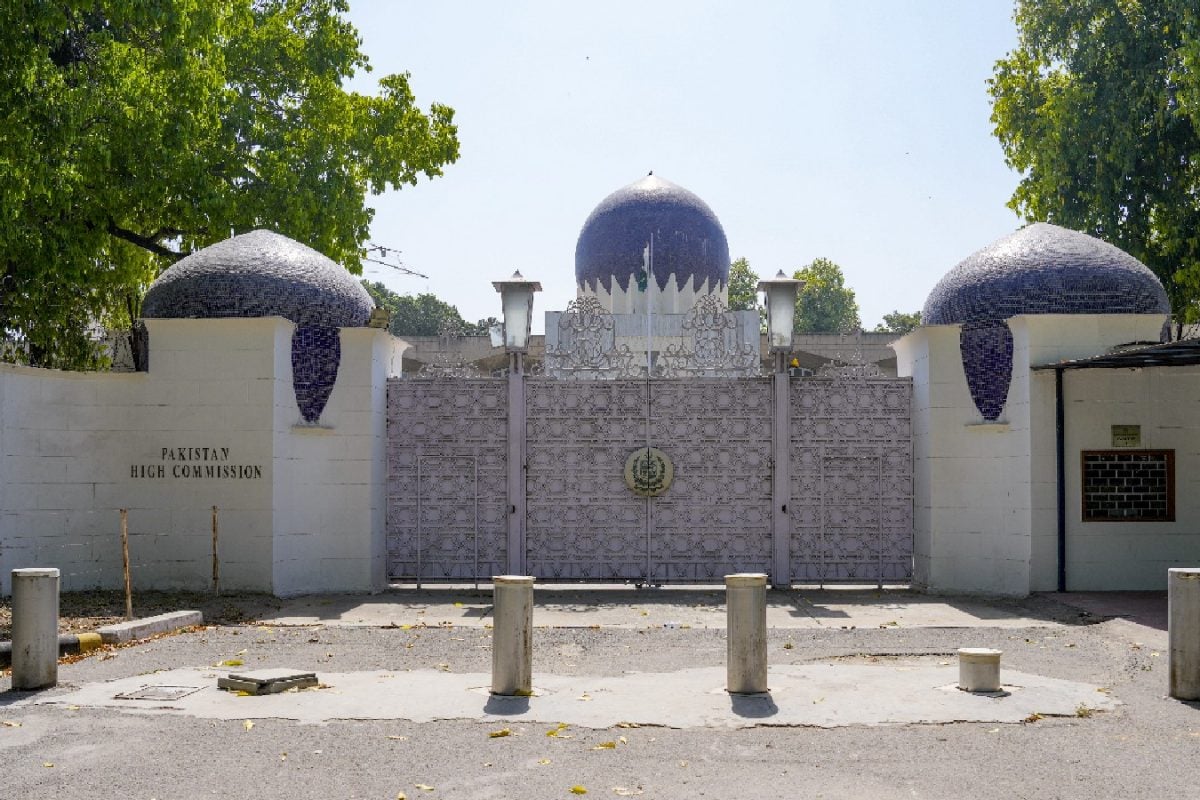

The Pakistan High Commission in New Delhi has long been under scrutiny, with recent events intensifying suspicions that it serves as a hub for espionage and subversive activities orchestrated by Pakistan's Inter-Services Intelligence (ISI). These concerns have been fueled by a series of arrests, expulsions, and revelations of covert operations, painting a concerning picture of the High Commission's role in activities detrimental to India's national security.
In recent months, Indian intelligence agencies have cracked down on ISI-backed networks operating within the country, with several cases directly or indirectly implicating officials at the Pakistan High Commission. One significant operation involved the dismantling of an espionage ring planning a terror strike in Delhi. The investigation revealed that a Pakistani operative, Ansarul Miya Ansari, was tasked with collecting sensitive information about Indian armed forces. Ansari's arrest, along with that of his Indian accomplice, Akhlaque Azam, exposed a network with links to ISI officers Muzammil and Ehsan-ur-Rahim, who were allegedly cultivating Indian influencers for intelligence purposes. This operation raised serious questions about the extent to which the High Commission's staff were involved in facilitating these activities.
Further compounding these concerns, India has expelled several Pakistani High Commission officials in recent weeks for "indulging in activities not in keeping with his official status in India," a euphemism for espionage. These expulsions, often followed by reciprocal actions from Pakistan, highlight the deep-seated mistrust and ongoing intelligence battles between the two nations. In one instance, a Pakistani official was linked to an espionage ring in Punjab, where individuals were arrested for providing sensitive information about the Indian Army's movements. Similarly, another official was found to be actively recruiting and grooming Indian citizens, including YouTubers and social media influencers, to act as intelligence assets.
These incidents are not isolated occurrences. Over the years, Indian security agencies have repeatedly flagged the Pakistan High Commission as a center for ISI operations. Officials posted at the High Commission have been known to use fake identities and engage in espionage activities under the guise of diplomatic work. In past instances, visa officers have been exposed as ISI agents, using their positions to gather intelligence and recruit informants.
The implications of these revelations are far-reaching. The presence of ISI operatives within the Pakistan High Commission not only undermines diplomatic norms but also poses a direct threat to India's national security. The information gathered through espionage activities can be used to plan terrorist attacks, disrupt military operations, and destabilize the country. The High Commission's alleged role in cultivating sleeper cells and recruiting Indian citizens to spy for Pakistan further exacerbates the threat.
In response to these developments, India has taken a firm stance, expelling officials, tightening security around the High Commission, and increasing surveillance of its activities. The Indian government has also raised the issue with international forums, highlighting Pakistan's use of its diplomatic missions for espionage and terrorism.
The situation remains tense, with ongoing investigations and heightened security measures. The Pakistan High Commission in New Delhi continues to be viewed with suspicion, and its activities are closely monitored by Indian intelligence agencies. As long as the allegations of espionage and ISI involvement persist, the High Commission will remain under a cloud of doubt, casting a shadow over the already strained relations between India and Pakistan.